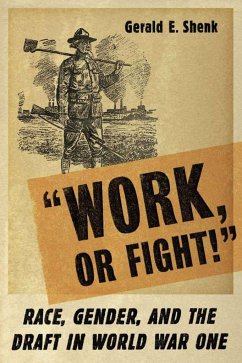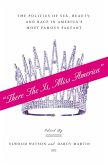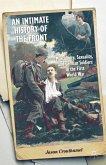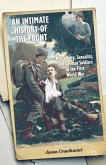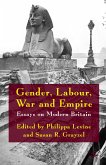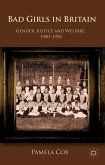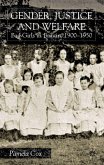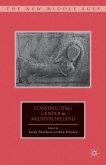During World War I the U.S. demanded that all able-bodied men work or fight. White men who were husbands and fathers, owned property or worked at approved jobs had the benefits of citizenship without fighting. Others were often barred from achieving these benefits. This book tells the stories of those affected by the Selective Service System.
"A probing, complex, and provocative study of the state, citizenship, and local power in early twentieth-century America. It combines in depth case studies with a remarkable analysis that privileges the intersections of race and gender in the unfolding of public policy and social conflicts. And, in drawing our attention to the dynamics of military conscription, it speaks directly to the political and moral issues of our own time." - Steven Hahn, author of the Pulitzer Prize-winning A Nation Under Our Feet: Black Political Struggles in the Rural South from Slavery to the Great Migration
"Extensively researched, engaging, and provocative. Simply the best account available on the actual operation of the draft and its relationship to power and identity in America in World War I. A real tour de force!" - John Whiteclay Chambers II, Rutgers University, editor-in-chief of The Oxford Companion to American Military History
"Shenk's richly textured analysis not only delivers acompelling and vividly told history but provides a complex view of the operation of white supremacist patriarchy. He helps us see how small decisions of both cooperation and resistance serve to shape but not undermine that ideology. Nevertheless, the stories are a testament to human will. Who would have thought that the lessons gleaned from the operation of the Selective Service during World War I would be so relevant today as we wage war in Iraq? We have much to learn from this powerful history." - Jane H. Aiken, William M. Van Cleve Professor of Law,
Washington University, St. Louis
"[A] powerful analysis of race, class, gender, sexuality and citizenship that sets an ideal benchmark for writing U.S. history. Meticulously researched, this excellent work could not be more timely in detailing the fundamental goals of draft officials as the protection of privileges associated with property, patriarch, and white supremacy. An invaluable contribution!" - MaryRomero, Arizona State University, author of Maid in the USA
"Gerald Shenk has given us a history that keeps its unerring eye on the subversive 'others' and the patriarchs calling the shots." - Akasha Gloria Hull, University of California, Santa Cruz
"Extensively researched, engaging, and provocative. Simply the best account available on the actual operation of the draft and its relationship to power and identity in America in World War I. A real tour de force!" - John Whiteclay Chambers II, Rutgers University, editor-in-chief of The Oxford Companion to American Military History
"Shenk's richly textured analysis not only delivers acompelling and vividly told history but provides a complex view of the operation of white supremacist patriarchy. He helps us see how small decisions of both cooperation and resistance serve to shape but not undermine that ideology. Nevertheless, the stories are a testament to human will. Who would have thought that the lessons gleaned from the operation of the Selective Service during World War I would be so relevant today as we wage war in Iraq? We have much to learn from this powerful history." - Jane H. Aiken, William M. Van Cleve Professor of Law,
Washington University, St. Louis
"[A] powerful analysis of race, class, gender, sexuality and citizenship that sets an ideal benchmark for writing U.S. history. Meticulously researched, this excellent work could not be more timely in detailing the fundamental goals of draft officials as the protection of privileges associated with property, patriarch, and white supremacy. An invaluable contribution!" - MaryRomero, Arizona State University, author of Maid in the USA
"Gerald Shenk has given us a history that keeps its unerring eye on the subversive 'others' and the patriarchs calling the shots." - Akasha Gloria Hull, University of California, Santa Cruz

